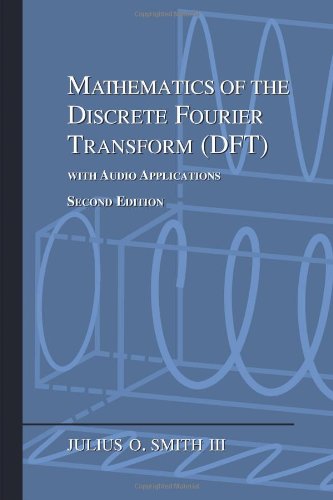Complex Numbers in Matlab and Octave
Matlab and Octave have the following primitives for complex numbers:
octave:1> help j j is a built-in constant - Built-in Variable: I - Built-in Variable: J - Built-in Variable: i - Built-in Variable: j A pure imaginary number, defined as `sqrt (-1)'. The `I' and `J' forms are true constants, and cannot be modified. The `i' and `j' forms are like ordinary variables, and may be used for other purposes. However, unlike other variables, they once again assume their special predefined values if they are cleared *Note Status of Variables::. Additional help for built-in functions, operators, and variables is available in the on-line version of the manual. Use the command `help -i <topic>' to search the manual index. Help and information about Octave is also available on the WWW at http://www.octave.org and via the help-octave@bevo.che.wisc.edu mailing list. octave:2> sqrt(-1) ans = 0 + 1i octave:3> help real real is a built-in mapper function - Mapping Function: real (Z) Return the real part of Z. See also: imag and conj. ... octave:4> help imag imag is a built-in mapper function - Mapping Function: imag (Z) Return the imaginary part of Z as a real number. See also: real and conj. ... octave:5> help conj conj is a built-in mapper function - Mapping Function: conj (Z) Return the complex conjugate of Z, defined as `conj (Z)' = X - IY. See also: real and imag. ... octave:6> help abs abs is a built-in mapper function - Mapping Function: abs (Z) Compute the magnitude of Z, defined as |Z| = `sqrt (x^2 + y^2)'. For example, abs (3 + 4i) => 5 ...
octave:7> help angle
angle is a built-in mapper function
- Mapping Function: angle (Z)
See arg.
...
Note how helpful the ``See also'' information is in Octave (and
similarly in Matlab).
Complex Number Manipulation
Let's run through a few elementary manipulations of complex numbers in Matlab:
>> x = 1;
>> y = 2;
>> z = x + j * y
z =
1 + 2i
>> 1/z
ans =
0.2 - 0.4i
>> z^2
ans =
-3 + 4i
>> conj(z)
ans =
1 - 2i
>> z*conj(z)
ans =
5
>> abs(z)^2
ans =
5
>> norm(z)^2
ans =
5
>> angle(z)
ans =
1.1071
Now let's do polar form:
>> r = abs(z)
r =
2.2361
>> theta = angle(z)
theta =
1.1071
Curiously, ![]() is not defined by default in Matlab (though it is in
Octave). It can easily be computed in Matlab as
is not defined by default in Matlab (though it is in
Octave). It can easily be computed in Matlab as e=exp(1).
Below are some examples involving imaginary exponentials:
>> r * exp(j * theta)
ans =
1 + 2i
>> z
z =
1 + 2i
>> z/abs(z)
ans =
0.4472 + 0.8944i
>> exp(j*theta)
ans =
0.4472 + 0.8944i
>> z/conj(z)
ans =
-0.6 + 0.8i
>> exp(2*j*theta)
ans =
-0.6 + 0.8i
>> imag(log(z/abs(z)))
ans =
1.1071
>> theta
theta =
1.1071
>>
Here are some manipulations involving two complex numbers:
>> x1 = 1; >> x2 = 2; >> y1 = 3; >> y2 = 4; >> z1 = x1 + j * y1; >> z2 = x2 + j * y2; >> z1 z1 = 1 + 3i >> z2 z2 = 2 + 4i >> z1*z2 ans = -10 +10i >> z1/z2 ans = 0.7 + 0.1i
Another thing to note about matlab syntax is that the transpose operator ' (for vectors and matrices) conjugates as well as transposes. Use .' to transpose without conjugation:
>>x = [1:4]*j
x =
0 + 1i 0 + 2i 0 + 3i 0 + 4i
>> x'
ans =
0 - 1i
0 - 2i
0 - 3i
0 - 4i
>> x.'
ans =
0 + 1i
0 + 2i
0 + 3i
0 + 4i
Next Section:
Factoring Polynomials in Matlab
Previous Section:
Solving Linear Equations Using Matrices




















